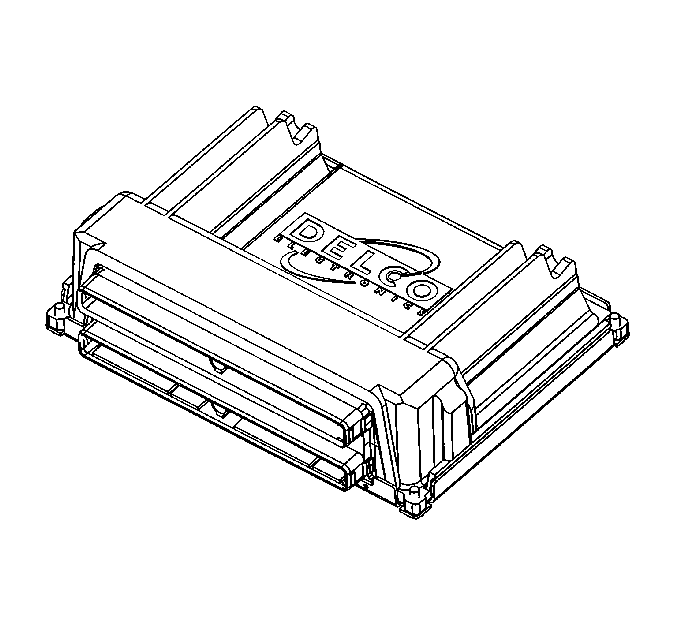Powertrain Control Module (PCM)

The Powertrain Control Module (PCM) is the control center of the fuel injection system. It constantly looks at the information from various sensors, and controls the systems that affect emission or engine performance. The PCM also performs the diagnostic function of the system. It can recognize operational problems, alert the driver through the Malfunction Indicator Lamp (MIL), and store a DTC or DTCs which identify the problem areas to aid the technician in making repairs. See Introduction in Powertrain Control Module for more information on using the diagnostic functions of the PCM.
EEPROM
This assembly contains the functions of the electrically erasable programmable read only memory (EEPROM) and is a permanent part of the PCM. The EEPROM contains the calibrations needed for a specific vehicle applications and is serviced only through a re-programming procedure.
PCM Function
The powertrain control module (PCM) supplies either 5 or 12 volts to power various sensors or switches. This is done through resistances in the PCM which are so high in value that a test light will not light when connected to the circuit. In some cases, even an ordinary shop voltmeter will not give an accurate reading because its resistance is too low. Therefore, a 10 megohm input impedance digital voltmeter is required to assure accurate voltage readings.
The powertrain control module (PCM) controls most components with electronic switches which complete a ground circuit when turned ON. These switches are arranged in groups of 4 and 7, called either a surface mounted quad driver module (QDM), which can independently control up to 4 outputs, PCM terminals, or output driver modules (ODM)s, which can independently control up to 7 outputs. Not all outputs are always used.
PCM Re-Programming
The replacement PCM must be reprogrammed and the crankshaft position system variation procedure must be performed. Refer to the latest Techline information on PCM re-programming and this section for the Crankshaft Position System Variation Procedure.
